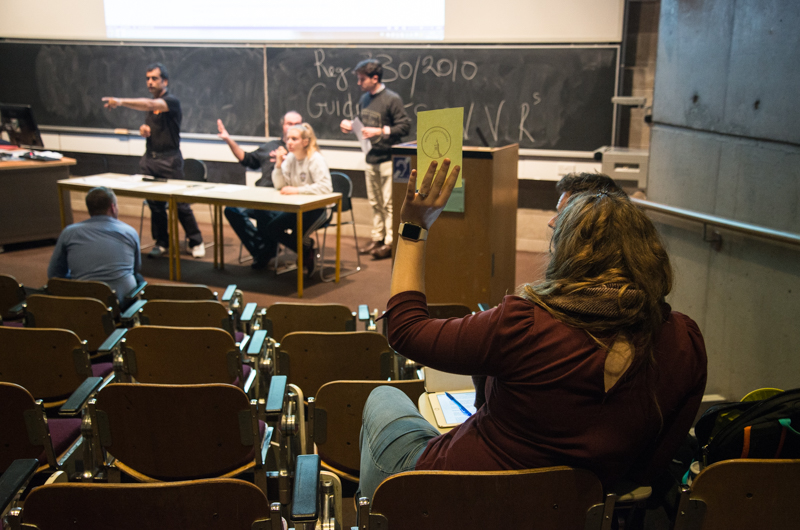Rejecting a contentious motion that saw many students abstain, tonight’s meeting of Trinity’s Graduate Students’ Union (GSU) voted against a call to see the union endorse an academic boycott of Israel.
The motion was proposed by Ciarán O’Rourke, a PhD student in the School of English, who stated that, since 2004, civil society groups “including students’ unions and academics” have called on the international community to boycott Israel “on human rights grounds”.
O’Rourke called attention to the ongoing occupation of Palestine by Israel and how Israel continues to breach international law by failing to prevent, and in some cases actively supporting increased Israeli settlement on Palestinian land. Recently, the Israeli government has come under censure from the international community for approving settlements on the West Bank – a hotly contested area – that are designed to rehouse settlers from illegal Israeli outposts. Government plans to expand existing settlements within Palestinian territory, such as Hebron, have also been criticised by the US, the EU and others.
O’Rourke added that since 2004 – when the International Court of Justice deemed Israel’s construction of a wall in the occupied Palestinian territory to be a violation of international law – Trinity’s research connections with Israeli universities have increased, drawing attention to collaboration between Trinity academics and Israeli drone manufacturer Elbit Security Systems.
Questions were raised, however, about how such a move would impact academic freedom. One representative called the motion “misguided”, asking for “one example of human history where a denial of education has helped” to resolve fundamentalism or violence, adding that he could think of plenty of examples of the converse. “We should not confuse political strife with academic achievement”, he added.
Representatives present also questioned what impact such a boycott would have on their studies. One student, who is in Trinity to study materials only located in a cave in Israel and owned by the state of Israel, questioned as to whether a boycott would prevent her from working with such materials.
O’Rourke called attention to Trinity’s connections with Israeli institutions with direct ties to the military. These connections “condone and endorse” the “fundamental problem” of Israel’s occupation of Palestine, O’Rourke stated.
O’Rourke clarified that his motion did not make reference to the Boycott Divest Sanction (BDS) movement, which works to end international support for Israel’s oppression by exerting political and economic pressure, stating his belief that Trinity cannot enforce sanctions.
O’Rourke called attention to Trinity’s precedent of supporting “persecuted communities”, pointing to how Nelson Mandela praised Trinity’s stance in relation to apartheid South Africa in 2000 when he received an honorary doctorate from the College, at a time when the UN still considered him a terrorist.







